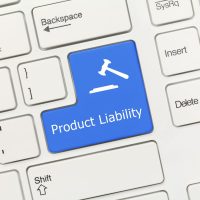Defenses in a Product Liability Lawsuit

In the complex landscape of allegedly defective consumer goods, medical devices, and toxic tort litigation, product liability claims often emerge as a significant concern for manufacturers, distributors, and retailers. Working with a New York product liability attorney who understands the defenses available in such lawsuits is crucial for businesses operating in New York, a jurisdiction with its own unique set of laws and regulations.
The Statute of Limitations
One of the first lines of defense in any product liability case in New York is the statute of limitations. Under New York law, a plaintiff must file a toxic tort claim within three years from the date of injury or from the date they should have reasonably discovered the injury. Failure to do so can result in the dismissal of the case upon a well-crafted motion from the defense. However, warranty claims have a four-year statute of limitations following the UCC.
Assumption of Risk
In some instances, defendants can argue that the plaintiff assumed the risk associated with the product. This defense is particularly effective if the risks are well-documented and the plaintiff proceeded to use the product despite knowing these risks. A related defense is that the plaintiff altered or modified the product.
Comparative Negligence
New York follows the rule of pure comparative negligence, which means that if the plaintiff is partially responsible for their injuries, any damages awarded will be reduced in proportion to their fault. For example, if a plaintiff is found to be 30% responsible, they would only receive 70% of the total damages. Likewise, if they were 70% at fault, they could still recover 30% of their damages. Furthermore, the defendant is not jointly and severally liable with other defendants for non-economic damages (pain and suffering) unless it is at least 51% at fault.
State-of-the-Art Defense
The state-of-the-art defense argues that the product was as safe as current technology allowed at the time it was manufactured or sold. This defense is especially relevant in toxic tort cases involving substances that were not known to be hazardous at the time of production.
Regulatory Compliance
Compliance with federal or state regulations can also serve as a defense. In New York, if a product meets established safety standards, it can be challenging for a plaintiff to argue that the product is defective. In certain cases, there may be federal preemption of state laws if the product has complied with certain federal requirements.
Sophisticated User Defense
In cases where the plaintiff is a professional or an expert in the field, the defendant can employ the “sophisticated user” defense. This argues that the plaintiff should have been aware of the product’s risks due to their expertise, thus absolving the defendant of the responsibility to warn.
Spoliation of Evidence
If the plaintiff has altered or destroyed evidence that could be crucial to the case, the court may dismiss the lawsuit or limit the evidence that the plaintiff can present.
Contact the Law Offices Of Richard A. Fogel, P.C. for Product Liability and Toxic Tort Defense in New York
Navigating a product liability lawsuit related to toxic torts in New York requires expert knowledge of both the scientific and legal complexities involved. Employing the right defense strategy can make a significant difference in the outcome of the case. Consulting with an attorney who practices extensively in toxic torts and product liability is crucial for mounting a successful defense. Contact the Law Offices of Richard A. Fogel, P.C., by calling 516-721-7161 for a consultation.
